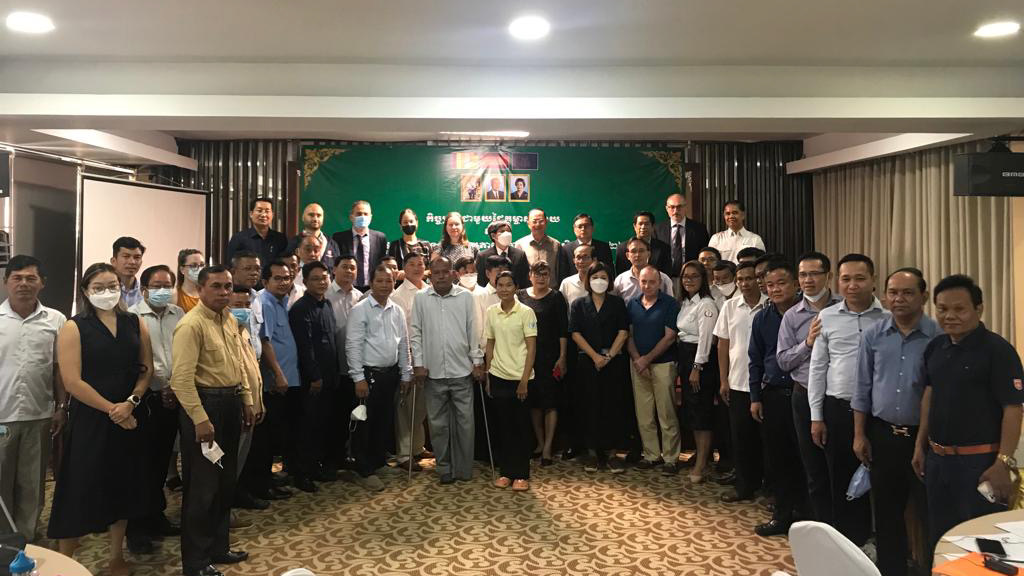7 July 2022 · Global Partnership for Zero Leprosy
Cambodia develops roadmap and action plan to end leprosy
In June 2022, the National Leprosy Programme of Cambodia, led by Dr Sambath Lay, hosted workshops in Phnom Penh to develop a Zero Leprosy Roadmap and Action Plan. Partners convened to outline strategies to bring the country closer to targets set forth by the WHO Road Map for Neglected Tropical Diseases 2021 – 2030 and the WHO Global Leprosy Strategy. They then identified and prioritized specific activities that would allow them to achieve these targets.

Cambodia is a 2020 country partner of the Global Partnership for Zero Leprosy (GPZL). The programme began implementing the Zero Leprosy Country Model in 2021 with the country review. Partners who contributed to the roadmap and action plan development include the Ministry of Health, The National Center for Tuberculosis and Leprosy Control (CENAT), the National Programme for Leprosy Control (NLEP), provincial health unit leadership, the Order of Malta France, Swiss Tropical and Public Health Institute, NLR, CIOMAL, IDEA Nepal, People with Disabilities Foundation (Cambodia), Cambodian Volunteers for Society, and representatives from WHO Cambodia, WHO Western Pacific Regional Office, and WHO Global Leprosy Programme. The workshop was also attended virtually by Prof. Tran Hau Khang from the Ministry of Health, Vietnam. He gave a presentation on the current status of leprosy in Vietnam and the disease control activities implemented there.
The action plan activities prioritize raising awareness of leprosy, increasing active case detection, increasing case management capacity, mapping endemicity, and providing screening and treatment to people in communities which are hotspots for leprosy.
With the development of the Zero Leprosy Roadmap and Action Plan, the National Leprosy Programme of Cambodia is one step closer to disease elimination. Through the remainder of the year, the programme aims to have the action plan endorsed by the Ministry of Health, develop plans for all priority interventions, define responsibilities for all leprosy supervisors, finalize a map of all hotspots, and identify opportunities for resource mobilization.